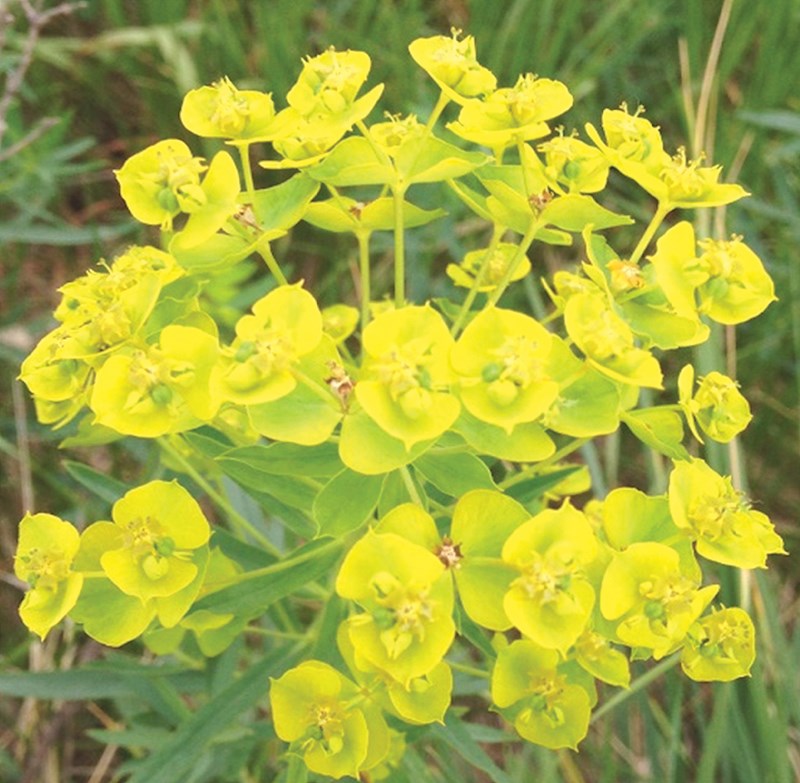Leafy spurge and the Grinch would make a good couple; while one depresses the Christmas cheer the other depresses your forage yield and quality. The long-lived perennial noxious weed is not growing during the winter months but it is certainly lurking at the ready to attack again in spring. With the capacity of producing up to 130,000 seeds per plant, growing roots at a rate of 4.5m annually, and re-sprouting from a sheer endless number of rood nodules, it is a force to be reckoned with. So while this yellow-green Grinch is slumbering under the snow, you can be busy planning your integrated weed control masterplan.
An integrated weed management approach is the fastest and most economical way to combat aggressive weeds like leafy spurge. An integrated control approach should be used in weed infestations larger than 5 hectares or in well-established leafy spurge patches. Research by Rodney Lym at North Dakota State University documented that the combination of biological control agents, herbicide application and targeted grazing resulted in a larger and faster decline in leafy spurge compared to one control method used alone.
How does it work? First, establish the perimeter of the infestation or where the infestation moves from sprayable patches to more continuous weed cover. Spray a corridor of about 12 meters, wide enough to prevent leafy spurge seeds to travel across this boundary. Spray any patches occurring outside of your established boundary. Inside the boundary, establish leafy spurge beetle populations and apply targeted grazing using goats and sheep. If the budget and environmental conditions allow it, fall herbicide applications can be used in areas where leafy spurge beetles are established. For a comprehensive weed management plan, it is best to work with a professional agrologist who specializes in weed control strategies.
For more information, please contact:
• Your Regional Forage Specialist,
• Agriculture Knowledge Centre at 1-866-457-2377 or
• The Program Design and Delivery Branch at 1-877-874-5365.




